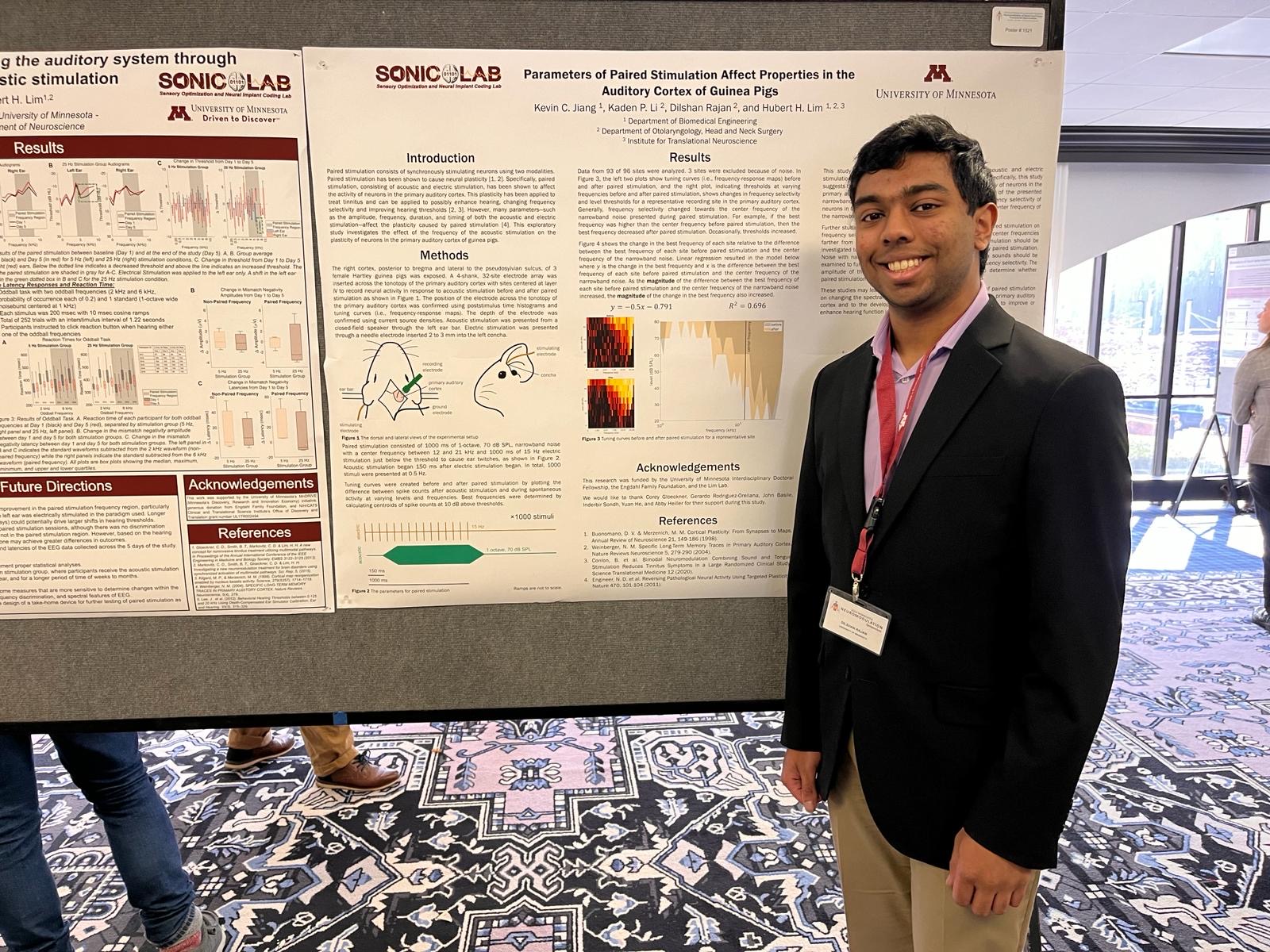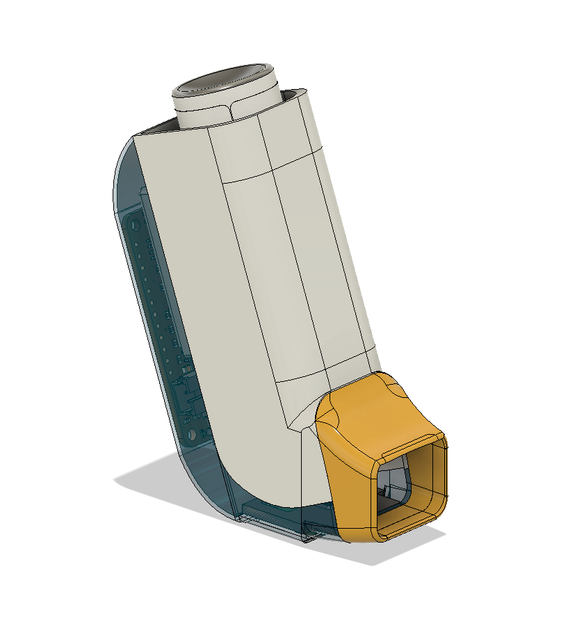
Dilshan Rajan is no stranger to the emergency room. As a child, he would periodically end up in the hospital when his inhaler wasn’t enough to get him through an asthma attack. Every year he’d go to his annual doctor visit and update his prescription, but there wasn’t much they could do beyond that.
“I wanted a better solution,” he said.
Now a sophomore at the University of Minnesota-Twin Cities majoring in physiology and psychology, Dilshan has been working tirelessly on his invention: the smart inhaler.
It’s exactly how it sounds, an inhaler that is outfitted with sensors to measure oxygen flow, pulse oxymetry, and track the trends over time. He also plans on creating an app that would send information to the asthmatic patient’s doctor.
“The ultimate goal is that this technology can replace a regular inhaler completely,” he said.
He first came up with the idea in February 2023, developing the initial concept between classes and studying. Over the summer, he completed a program through the Technological Leadership Institute in the College of Science and Engineering. That’s where he began to flush out the business side of the invention, ending the course by creating his three minute pitch for the smart inhaler.
In December 2023, Dilshan filed the patent for his project. He was able to use the services of Legal Corps who found him a lawyer willing to help pro bono. The entire process took around two weeks and he estimates he’ll be in the “patent pending” stage for around two years.

In the meantime, he’ll be working on the physical prototype using his 3D printer at home. After that he’ll begin designing the app and start looking for funding to advance the project. All of the work is done completely on his own, working on the project in free moments between classes and on the weekends.
“I had to find all the resources on my own,” he said, adding that he’s grateful to have his family’s support.
In Spring 2024, Dilshan was awarded a Goldwater scholarship,awarded to students who are interested in pursuing research careers in mathematics, science, and engineering. He’ll be using the scholarship to conduct research in two labs. One lab is in otopathology, and he’ll be studying hearing and balance pathology. The second lab is in neural engineering.
“I conduct experiments in both animals and humans using bimodal neuromodulation - pairing sound and electrical stimulation - to induce neuroplasticity in the auditory cortex and hopefully treat tinnitus,” he said.
In other words, he’ll have plenty of work to keep him occupied during his time at the U. After graduation, he plans to do an MD/PhD in biomedical engineering.
“I’ve known I want to be a doctor since I was three,” he said. That was the year his mom had brain surgery; he’s been interested in science ever since. Between that and his asthma-induced trips to the emergency room, he’s gotten familiar with the medical field.
Until then, he’ll continue working on the smart inhaler. He also has another medical device he’s in the process of creating; this time, though, he has help from a clinical mentor and other students. He’s always looking for ways to grow and challenge himself.
“Once you get your first opportunity, things will lead into other opportunities,” he said. “You just form a web that gets you to where you want to go.”